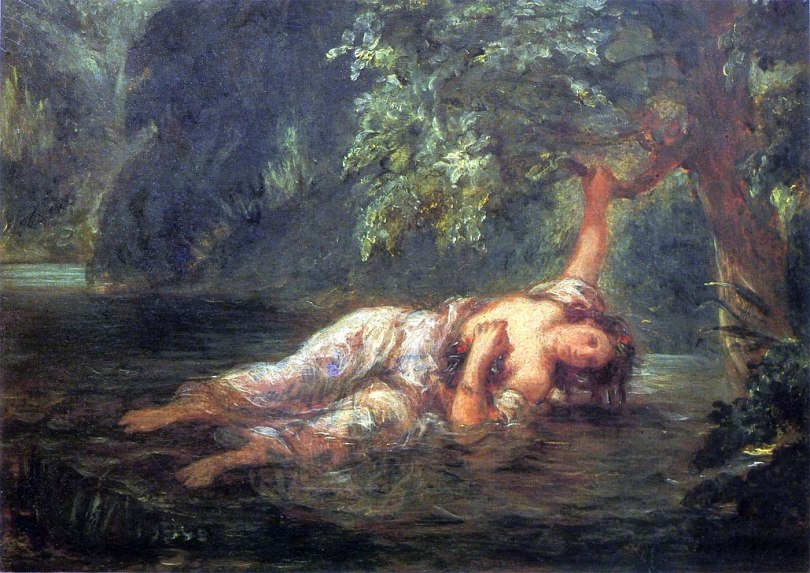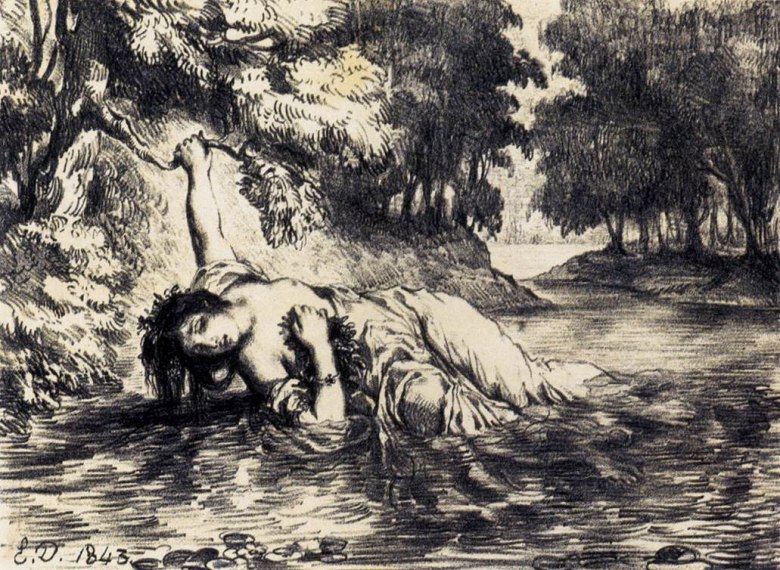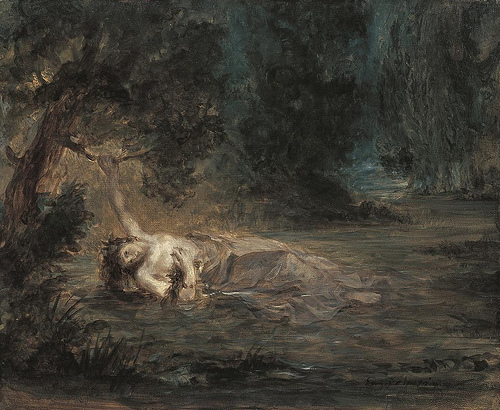| Eugène Delacroix Ophelia |
|
ウジェーヌ・ドラクロワ 「オフィーリアの死」 1844年
Eugène Delacroix, The Death of Ophelia, 1844.
QUEEN There is a willow grows aslant a brook, That shows his hoar leaves in the glassy stream; There with fantastic garlands did she come Of crow-flowers, nettles, daisies, and long purples That liberal shepherds give a grosser name, But our cold maids do dead men's fingers call them: There, on the pendent boughs her coronet weeds Clambering to hang, an envious sliver broke; When down her weedy trophies and herself Fell in the weeping brook. Her clothes spread wide; And, mermaid-like, awhile they bore her up: Which time she chanted snatches of old tunes; As one incapable of her own distress, Or like a creature native and indued Unto that element: but long it could not be Till that her garments, heavy with their drink, Pull'd the poor wretch from her melodious lay To muddy death. HAMLET, Act 4, Scene 7 王妃 小川のほとりに柳の木が斜めに立ち、 白い葉裏を流れに映しているところに。 オフィーリアがきました、キンポウゲ、イラクサ、 ヒナギク、それに口さがない羊飼いは卑しい名で呼び、 清純な乙女たちは死人の指と名つけている、 紫蘭の花などを編み合わせた花冠を手にして。 あの子がしだれ柳の枝にその花冠をかけようと よじ登ったとたんに、つれない枝は一瞬にして折れ、 あの子は花の冠を抱いたまま泣きさざめく流れに まっさかさま。裳裾は大きく広がって しばらくは人魚のように川面に浮かびながら 古い歌をきれぎれに口ずさんでいました、 まるでわが身に迫る死を知らぬげに、あるいは 水のなかに生まれ、水のなかで育つもののように。 だがそれもわずかなあいだ、身につけた服は 水をふくんで重くなり、あわれにもその 美しい歌声をもぎとって、川底の泥のなかへ 引きずり込んでいきました。 『ハムレット』第4幕7場より シェイクスピア『ハムレット』 小田島雄志 訳 白水uブックス |
|
ウジェーヌ・ドラクロワ 「オフィーリアの死」 1843年
Eugène Delacroix, The Death of Ophelia, 1843.
|
ウジェーヌ・ドラクロワ 「オフィーリアの死」 1843年
Eugène Delacroix, The Death of Ophelia, 1843.
![]()
![]()
![]()
 |


